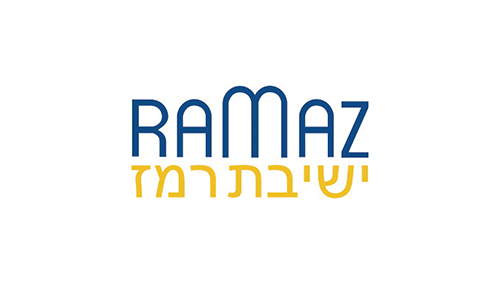
And this is what I’ve learned.
I grew up in New York City, so I thought I had a generally good understanding of what it meant to be Jewish, as far as a gentile like me could understand. After all, I love Katz’s Deli and have attended many Passover Seders at my best friend’s house.
But teaching biology at Ramaz, an Orthodox Jewish school, this past year showed me how little I knew.
I was bowled over by the students’ collective fearlessness when it came to discussing ideas and debating their points without fear.
I would tell the head of my department whenever there might be a controversial issue that might come up in biology class just to give her a heads-up. She would nod her head and say, “OK, as long as the science is clear to the students.” She wasn’t overly concerned with how potentially spirited the debate might get between students.
This is rather different from what I have experienced at other schools, where the unspoken rule was to avoid or minimize discussing issues that could be potential hot buttons. Biology is a subject where a lot of land-mine issues can be found: issues around gender, race and sexuality can inadvertently turn a lesson into a hotbed of political strife. Even topics as innocuous as natural selection can be a proverbial land mine if a teacher isn’t careful.
Students in the past have confided in me that they are nervous expressing their points of view out of fear that they will be shunned or canceled. I don’t know what is in a student’s heart and mind, but at Ramaz not once have I had a student share fears like that with me.
Jewish culture embraces discussion, argumentation and hearing various points of view, and that helps to prevent or at least minimize that kind of idea policing. As part of the culture, students study the Talmud and they learn to read multiple interpretations and commentaries of Torah passages. These students have grown up in a world where it is normal and expected for people to have strong perspectives on important issues, but it’s also expected that your point of view be supported by more than feelings—there needs to be evidence and logic to support your conclusion.
These students have grown into a culture that says, “In order to get closer to the truth, at least as best as humans can approximate it, it’s important to hear multiple perspectives.” This kind of outlook and education is rather different than what many students experience at other educational institutions, where they may be less likely to hear or appreciate the idea that respectable people can have differing points of view.
Growing up in a culture that demands logical, refined thinking results in students who may get annoyed at one another for their points of view but don’t feel the need to ostracize someone who dissents from the consensus. I have not once seen a student who felt like they couldn’t share their opinion on an issue in a class. This kind of fearlessness is refreshing, and all too rare.
Helping Others
As important as being able to discuss academic and philosophical issues, the most important thing about education is how it can help challenge a person to go out into the world and make it better because of their engagement. I have seen firsthand the importance Ramaz places on helping students develop this sense of mission and caring about others.
Students talked about their experiences on service trips where they helped renovate houses in New Orleans. On this particular trip students went down to the Lower Ninth Ward, an area that still echoes the effects of Hurricane Katrina. They worked all week to renovate homes that were water-damaged. Additionally, the students cooked and served over 150 homeless people.
It seems like every week there is a new initiative to help other people. Whether it is toy drives or fundraisers, the spirit of giving permeates this institution and strongly influences students to offer the best of themselves to the world from a young age.
I have taken away a lot of wonderful experiences teaching at Ramaz this year. From learning Hebrew vocabulary from students to learning the basic rules of shechita, ritual slaughter, I have received a taste of a world I only knew at the tiniest level. I am grateful for the opportunity to appreciate a culture that is a beautiful diverse melting pot that has come together in sharing the same values. I’m a better teacher and, hopefully, a bit more of a mensch, thanks to my time within the Orthodox community.
*Reprinted with permission from Aish. The original article can be found at https://aish.com/im-a-gentile-teaching-at-an-orthodox-jewish-school/
Selim Tlili teaches high school biology at the Ramaz School in NYC. He completed his bachelor’s in biology from SUNY Geneseo and his master’s in public health from Hunter College. He writes about science, literature and education at selim.digital.












